Electronics All-In-One Desk Reference for Dummies: UK Edition
£24.80£26.60 (-7%)
Your one-stop UK shop for clear, concise explanations to all the important concepts in electronics and tons of direction for building simple, fun electronic projects.
The 8 mini-books in this 1 volume include:
- Getting Started with Electronics
- Working with Basic Components
- Working with Integrated Circuits
- Getting into Alternating Current
- Working with Radio and Infrared
- Doing Digital Electronics
- Working with Basic Stamp Processors
- Building Special Effects
With nearly 900 pages of instruction, Electronics All-in-One For Dummies, UK Edition covers all the bases and provides a fascinating hands-on exploration of electronics.
Read more
Additional information
| Publisher | For Dummies, UK edition (25 Oct. 2013) |
|---|---|
| Language | English |
| Paperback | 848 pages |
| ISBN-10 | 1118589734 |
| ISBN-13 | 978-1118589731 |
| Dimensions | 18.8 x 5.08 x 23.37 cm |

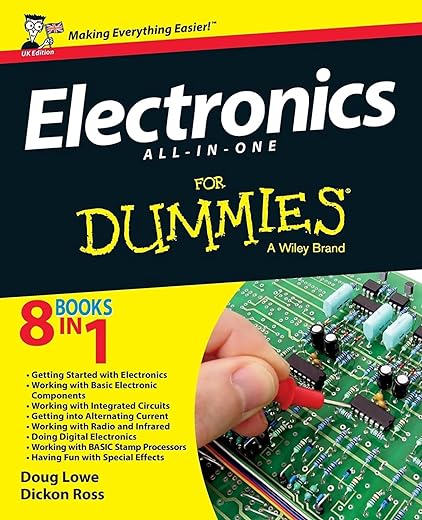
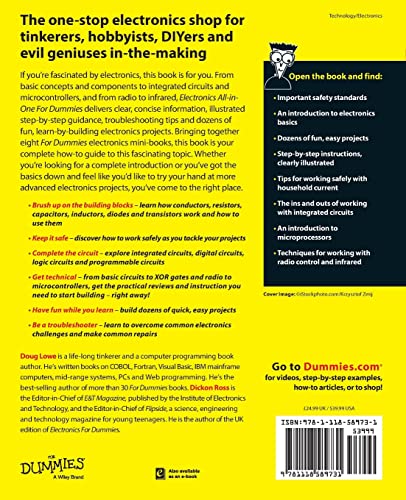

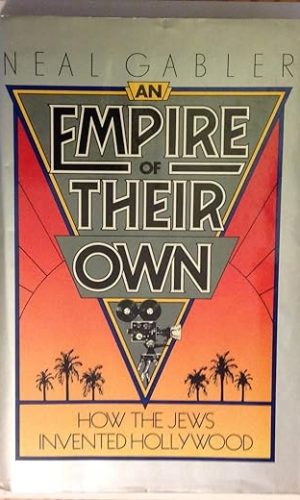
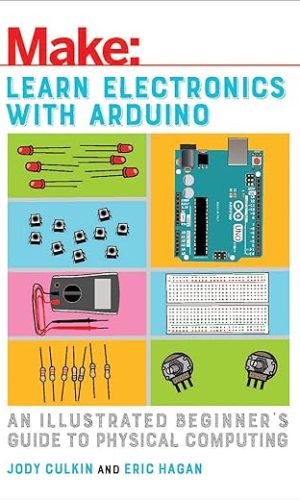

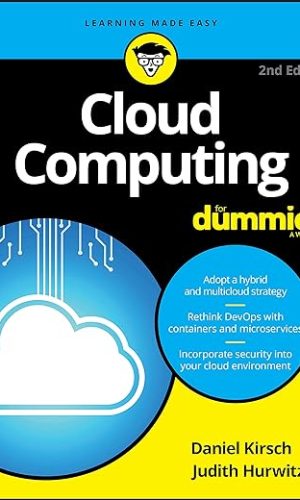



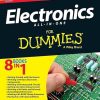
by simon bush
well written
by MrSushiBoy
This is a big book that covers a lot of ground. The early chapters are aimed at the absolute beginner but by the end of the book you’ll have encountered some complex specialised material that would probably only be covered – from an educational perspective – at undergraduate level, albeit without the theoretical, “mathsy” depth. As with most of the Dummies books I’ve seen, the title belies the fact that it’s a pretty comprehensive reference, even if the layout and language sometimes makes it seem like it’s dumming down the subject. Recommended for beginners in electronics and even those with moderate experience and expertise.
by Ed Marsh
I’m a highly accomplished programmer so maybe i found this book exceptionally easy to get to grips with. However….
Having used (programmed) some Arduino boards and Raspberry Pi’s for a couple of projects I decided to go back to my youth and actually learn something about electronics instead of focusing directly on software.
I read a couple of things on web sites then downloaded this book and I’m very glad I did.
It’s easy reading and enjoyable – the authors manage to happily speak to the geek in me with pop culture references and a joke or two. All whilst teaching me why I need a resistor before an LED (I actually found that out the hard way…) – what a capacitor does and why I need to know… And by the end of each chapter I realised I had been sneakily taught a shed load about each subject.
We take quite a leap around 70% through with a massive warning about not to panic (and rightly so) into IC’s, logic gates, and a little BASIC programming.
Finally a few real world example builds to produce fully functioning circuits.
I’ve gone from a total newbie with no real idea of what on earth I was even looking at to a total newbie who knows what different components do and roughly how I can put them together in a useful way, read an oscilloscope, and be confident to build and debug (is that the right word for electronics?) fairly robust systems.
I can read a schematic and understand what’s going on (a REALLY helpful thing to be able to do).
Safety is extremely well covered too.
This book is pretty much, in my opinion a essential and pleasing and informative read for anyone wanting a very solid inroad into electronics.
by RJ
Really liked this book when I read it a couple of years ago. Decided I wanted my own copy. Starts at the beginning, covers everything (to a relatively good level of detail). Lots of good little example projects. If you want to learn all of the maths, this isn’t your book – if you want to understand the basics and start playing with circuits – this is your book. Thoroughly recommend. It’s written in very plain English, would suit a bright youngster who is interested and wants a good basic grounding.
by J. East
Very good for the complete novice in electronics. This tome contains all 8 editions of the series and starts at the very beggining.
The chapter breakdown is very well done – you can refer to a section without having to read the whole chapter.
As i am trying to get back into the hobby again (after 12 years) this is definatly what i needed to revise my knowledge.
This is sitting on shelf and i use it regularly when building circuits.
by Gambit
Good points:
Lots of useful information, great for beginners. Good price. Wide range of topics covered.
Bad points:
It’s 7 years since it was updated and you can tell. Obviously a lot of the content ages fine but for example, it has an entire mini book dedicated to the basic stamp which as others have pointed out really should be about Arduino/raspberry pi and also tells you to buy components from maplins….
by Brian Walker
Easy to follow with many projects that explain how to do them and what each component does. Great for beginners.
by CHRISTOPHER WATKINS
A good book for learning about electronics, easy reading style with good examples. Some of the chapters are rather dated with a section on interfacing with the Parallel Port on a pc, most if not all modern pc’s use usb now. Also there is a large section on using the Basic Stamp microcontroller and programming it, when the majority of people have moved on to Arduino or ESP32 or similar development platforms.